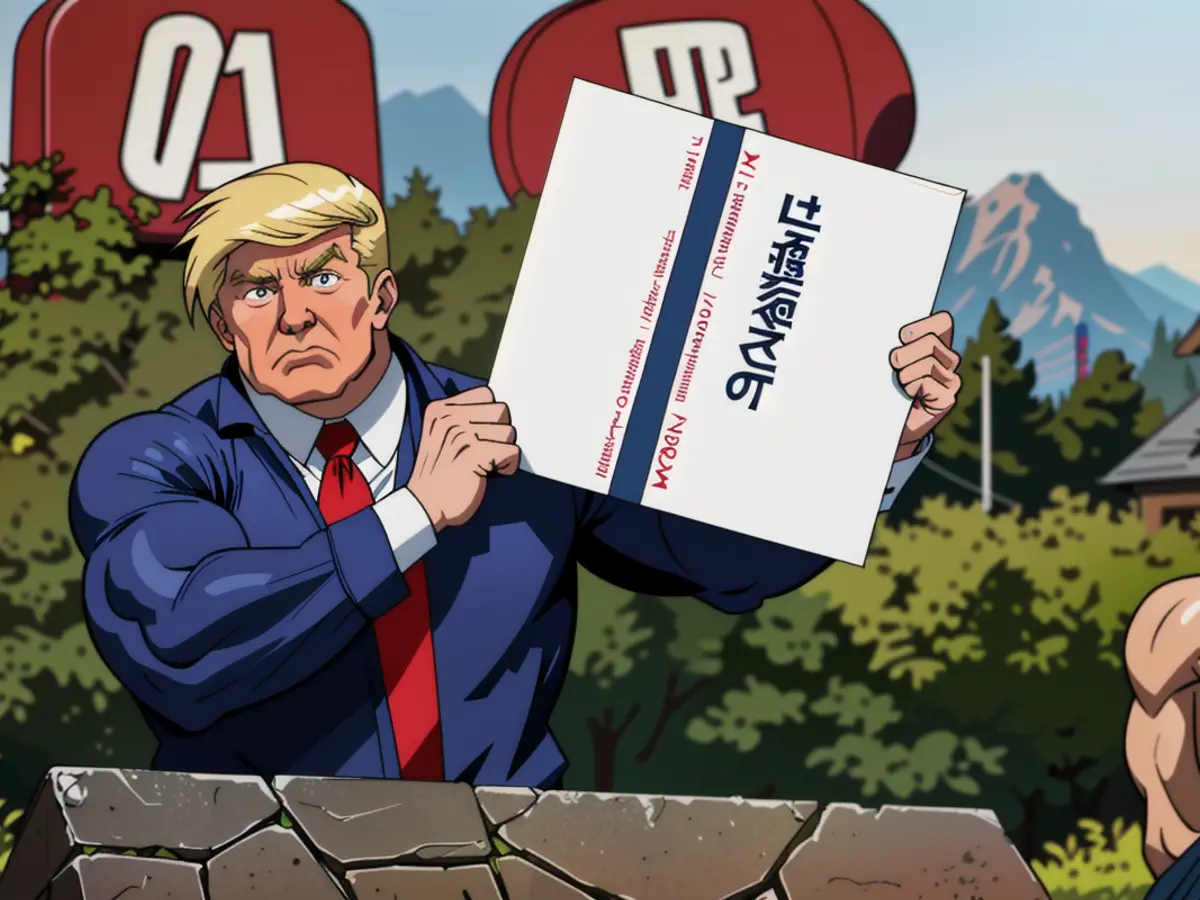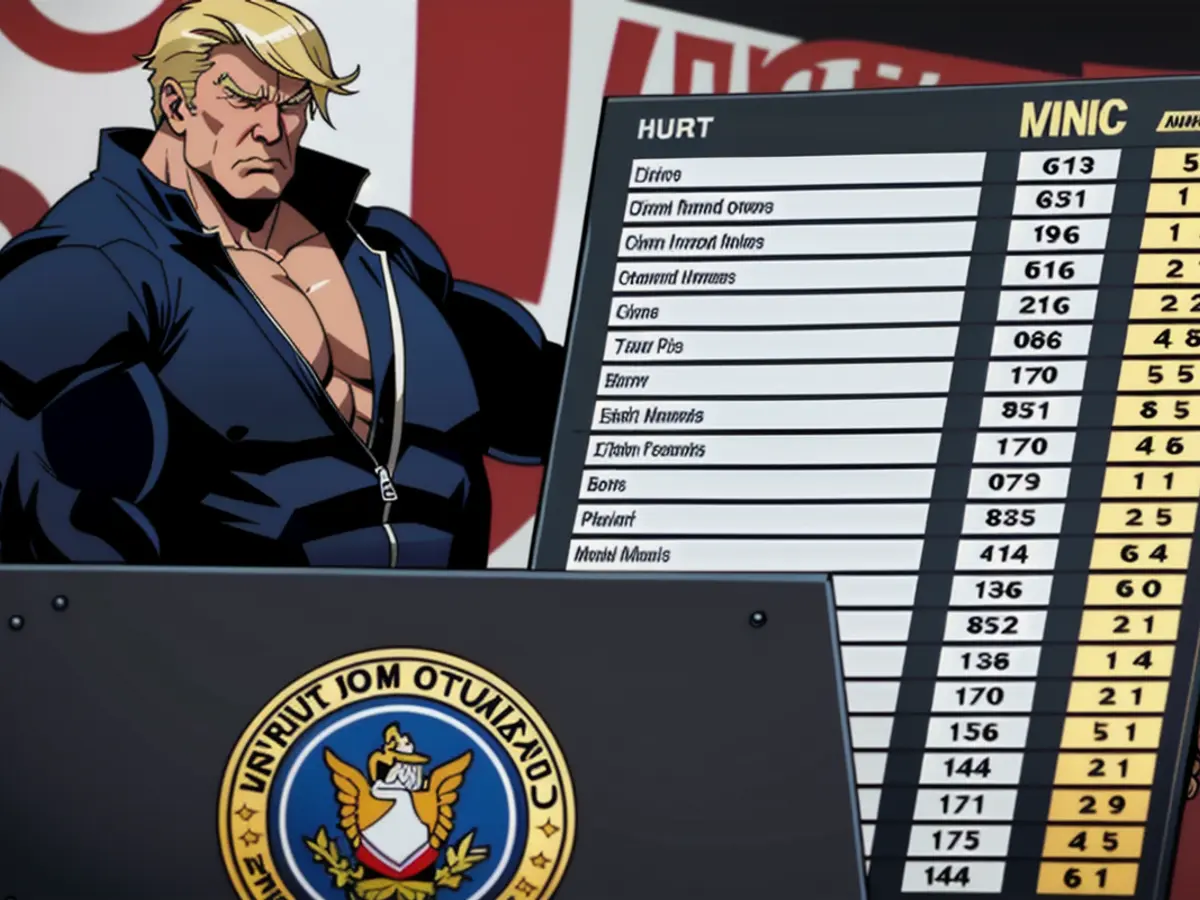Let's Get Real About That Trade War: Why is Trump Doing This?
- Written by Jim P. Doyle
- 2 Min Read
- Trump's Actions Examined: Unraveling His Choices
The economic world has been tumbling ever since Trump's declaration last week, slapping high tariffs on almost every international trading partner of the US. The response was less than enthusiastic: the EU is threatening retaliation, stock markets worldwide are taking a nosedive, and social media is ablaze with confusion.
Trump justified his move by touting support for US companies: "Today marks a pivotal moment in history as American industry rises from the ashes, reclaiming its destiny, and ushering in an era of prosperity for our great nation."
Trump's Reasons for the Tariffs
The rationale behind the tariffs appears straightforward: Trump believes they'll help create jobs. However, many experts aren't on the same page. Samina Sultan, a seasoned economist focusing on European policy and trade, had this to say during a chat with stern: "We can expect inflation in the U.S. to rise." Isolation and protectionism have seldom led to prosperous times.
Trump might be hoping that foreign companies will pump more money into the US and even shift their production there. His line of thinking: Higher tariffs squeeze profits for foreign companies. To maintain profits on the American market, they'll need to produce domestically.
In his address following the tariff announcement, the President mentioned companies that had planned to invest large sums in the US. However, these decisions were made before his tariff decree. Of late, the US has lost its appeal for many companies. Trump's unpredictable leadership could represent an economic risk in itself.
Revenge on the World Community
Besides, Trump openly mentioned revenge as a reason: "For decades, the USA has been plundered, burned, and raped by near and far nations, friend and foe alike," Trump claimed.
The tariffs thus seem like a way of getting back at international trading partners, especially the EU and Germany. Germany has a trade surplus with the US, selling more to the States than it buys. Trump seems irked by this imbalance.
For cars imported from Europe, he's even announced a flat tariff of 25%. For steel and aluminum, this has been in place since mid-March. Tariffs like these are intended to shield American companies from foreign competition and stimulate domestic production.
Trade War as Image Management
Additionally, Trump claimed he was imposing tariffs to safeguard and promote jobs in the industry. Many American jobs in manufacturing are under threat due to imports.
What's often forgotten amidst Trump's big promises: his approval ratings among the American public are plummeting. By announcing the tariffs, he might as well be positioning himself as a champion of the workers and acknowledging workers from the former industrial city of Detroit.
He could also be trying to portray himself as an iron-fisted leader who can strong-arm the entire world to the bargaining table. The success of this approach remains to be seen. The EU has already hinted at countermeasures on a grand scale.
- Donald Trump
- Trade War
- USA
- EU
- Germany
The EU, being less exposed to US tariffs, is more resilient. Exports to the US represent 2.1% of EU GDP, which could affect 0.4% of GDP.[3] Prices in the EU are expected to slightly decrease due to redirected exports, increasing competition in the market.[1] The EU aims to reduce its dependence on the US market by fostering new trade agreements and contemplating countermeasures like its Anti-Coercion Instrument.[3]
Germany's economy could stall, with growth projected at only 0.1% in 2025. U.S. tariffs could further reduce German economic growth by 0.1 percentage points annually.[2] Tariffs on metals like steel and aluminum could heavily impact German industry, which heavily relies on exports.[2] Germany and the EU are exploring ways to lessen these impacts by enhancing internal market efficiency and seeking alternative trade partners.[3]
The Commission has also been consulted on the draft directive, expressing concerns about the potential economic fallout from the tariffs, especially since they might lead to rising prices and reduced purchasing power for households. Trump's announcement of high tariffs on international trading partners, including the EU and Germany, has been met with apprehension, as these countries seek ways to lessen the impacts, such as fostering new trade agreements or contemplating countermeasures. Despite these concerns, the President announced a flat tariff of 25% for cars imported from Europe, reiterating his stance that these measures are necessary to safeguard and promote jobs in the US industry.










